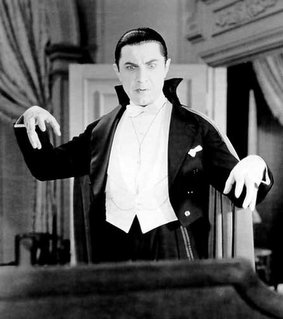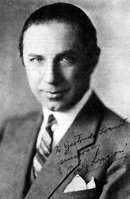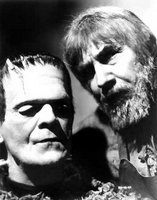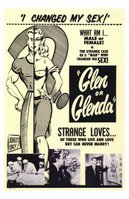Petri Dish 101: Bela Lugosi, Dark Emperor of the Vampires

This entry is dedicated to my lovely wife Rita, who turns one year older today. Consider this an electronic birthday card, My Sweet.
At an age and era when most girls were carrying crushes on Leif Garrett and Donny Osmond, Rita harbored a grade-school crush on Bela Lugosi's Dracula. As it states on the intro to this Blog, Rita's pretty cool for a girl. No, let's amend that: She's really cool for a girl.
Put bluntly, there would be no Dracula without Bela Lugosi. The Hungarian horror icon's indelible performance as that most famous of cinema bloodsuckers created the template for the character. And his formidable shadow looms large over every single actor who's portrayed the Count since.
Born in Lugos, Hungary in 1882, Bela Blasko rechristened himself Lugosi in homage to his town of birth when he first began steadily acting onstage with the Budapest Academy of Theatrical Arts at the turn of the twentieth century. A passionate political activist, he organized an Actor's Union in 1918 after the Hungarian monarchy fell. Hungary's leftist forces took a tumble of their own the next year, and--knowing his views could readily get him killed--the actor/activist fled his homeland.
Lugosi began film acting as early as 1917
 in Hungary, then imigrated to Germany after the collapse of the Hungarian Leftist movement, and finally to America in 1921. After toiling in bit roles in a handful of silent movies, he landed the role of a lifetime in the stage version of Dracula.
in Hungary, then imigrated to Germany after the collapse of the Hungarian Leftist movement, and finally to America in 1921. After toiling in bit roles in a handful of silent movies, he landed the role of a lifetime in the stage version of Dracula.Dracula packed 'em in on Broadway, and a star was born. Practically overnight, Bela Lugosi became a stage heartthrob. His aristrocratic good looks and personal magnetism put him in a class with the recently-departed Valentino (Clara Bow, the Angelina Jolie of her day, was reputedly one of Lugosi's lovers). Three years later, Universal Pictures began production on the film version of Dracula, and Lugosi's legacy to world culture was set in stone.
Despite Lugosi's triumph as Dracula, his career as a Hollywood actor began taking a sad turn almost as soon as the movie saw theatrical release. His minimal grasp of English (he learned all of his lines phonetically for the film), plus his decidedly stubborn European pride, made him either an easy target for the sharks that ran most movie studios, or too high-maintenance for impatient directors.
Within a few years Lugosi was reduced to working in the most impoverished B flicks on Poverty Row, forsaken by the power players of Tinseltown. His final years edged to a fade with drug addiction, financial woe, and dubious fame as the figurehead of Z director Ed Wood's stock company before the screen Dracula succumbed to a heart attack in 1956.
Take your jaded modern-day goggles off before watching a Lugosi film. His florid but unique performances remain inexorably tethered to a time long gone, and like any art distinctly of its time, Lugosi's films require you to put yourself in that time, to an extent . If you're willing to make the stretch, however, you'll be richly rewarded. Bela Lugosi's finest acting moments are haunting, romantic and unearthly gothic paintings compared to the earnest but obvious pencil sketches constituting most film actors' performances. And they endure.
Essential Lugosi:
Dracula (originally released in 1931, available on DVD from Universal Home Video): The Rosetta Stone for Lugosi's career, and ground zero for the modern cinema vampire. The movie shows many of its seams as an early talkie; it's a bit too static in places, and the dialogue's pretty stilted and wooden. But the opening scenes--all shot silent--envelop the viewer in atmosphere, and Lugosi's piercing gaze and singular line delivery still mesmerize.
Island of Lost Souls (1932, unavailable on domestic DVD): Charles Laughton plays Dr. Moreau, a mad scientist on a tropical island whose vivisection
 experiments have created a race of half-human, half-animal freaks. The sympathetic 'manimals' soon take matters into their own hands, gruesomely. Surprisingly strong for its era, this adaptation of H.G. Wells' Island of Dr. Moreau still packs a wallop. Ignore Richard Arlen's bland hero, and drink in Laughton's sadistic bravura turn as Moreau, Kathleen Burke's exotic panther woman Lota, and most especially Lugosi's brief but impassioned portrayal of the manimals' voice of emancipation, the Sayer of the Law.
experiments have created a race of half-human, half-animal freaks. The sympathetic 'manimals' soon take matters into their own hands, gruesomely. Surprisingly strong for its era, this adaptation of H.G. Wells' Island of Dr. Moreau still packs a wallop. Ignore Richard Arlen's bland hero, and drink in Laughton's sadistic bravura turn as Moreau, Kathleen Burke's exotic panther woman Lota, and most especially Lugosi's brief but impassioned portrayal of the manimals' voice of emancipation, the Sayer of the Law.The Black Cat (1934, Universal Home Video): The Black Cat marked Lugosi's first on-screen team-up with fellow Universal horror superstar Boris Karloff. In most of their pairings, Karloff got the more showy and challenging roles, but here both men play the most compelling and flawed of adversaries. Lugosi is Vitus Werdegast, a tortured doctor out to avenge his wife's death at the hands of Poelzig (Karloff), a war criminal and Satanic high priest. Edgar Ulmer directs with dark expressionistic verve, and the movie covers some seriously gruesome ground. Lugosi navigates Verdegast's evolution from grieving widower to crazed avenging (and flaying) angel magnificently in one of his more overlooked acting efforts.
Son of Frankenstein (1938, Universal):
 Lugosi carved his second indelible horror icon--the hunchbacked shepherd Ygor--with this entertaining third Franken-flick. Cheater of death from the hangman's noose and controlling ally of the Frankenstein Monster (Boris Karloff, reprising the creature costume for the last time), Ygor casts a spectral, gravelly-voiced, sinister, yet somehow endearing shadow in Son's supporting foundation--it's a stellar performance.
Lugosi carved his second indelible horror icon--the hunchbacked shepherd Ygor--with this entertaining third Franken-flick. Cheater of death from the hangman's noose and controlling ally of the Frankenstein Monster (Boris Karloff, reprising the creature costume for the last time), Ygor casts a spectral, gravelly-voiced, sinister, yet somehow endearing shadow in Son's supporting foundation--it's a stellar performance.Glen or Glenda? and Bride of the Monster (1952 and 1955, Image Home Entertainment): The works of Edward D. Wood have garnered plenty of derisive chuckles over the years, but the fact remains that
 1), they're more entertaining (and weirdly personal) than 99.9% of anything mainstream Hollywood has excreted before or since, and 2), they provided Lugosi with his final acting hurrah. Lugosi's intense delivery of Wood's pro-transvetism psychobabble/shamanism in Glen, and the icon's stormy reading of the "race of supermen" monologue in Bride prove that , pathetic as his final years were, he went out swinging and never gave a half-assed performance, even under the most ridiculous circumstances.
1), they're more entertaining (and weirdly personal) than 99.9% of anything mainstream Hollywood has excreted before or since, and 2), they provided Lugosi with his final acting hurrah. Lugosi's intense delivery of Wood's pro-transvetism psychobabble/shamanism in Glen, and the icon's stormy reading of the "race of supermen" monologue in Bride prove that , pathetic as his final years were, he went out swinging and never gave a half-assed performance, even under the most ridiculous circumstances.Ed Wood (1994, Touchstone Home Video): Finally, an honorable mention to Tim Burton's fine and loving ode to the titular notorious grade Z director. Some purists grumbled (Lugosi, given a somewhat salty tongue by Burton and company, reputedly never swore in real life), but Martin Landau netted an Oscar for his amazing performance as Lugosi, and he captures the spirit of the horror legend to a completely uncanny (and uncannily moving) degree.
I'd like to think that somewhere, somehow, Bela Lugosi smiled approvingly before disappearing into the fog-enshrouded darkness that Oscar night.


Comments
But no ABBOTT AND COSTELLO MEET FRANKENSTEIN? C'mon! Lugosi mines comic gold out of his screen persona in that film, a truly great comic thriller.